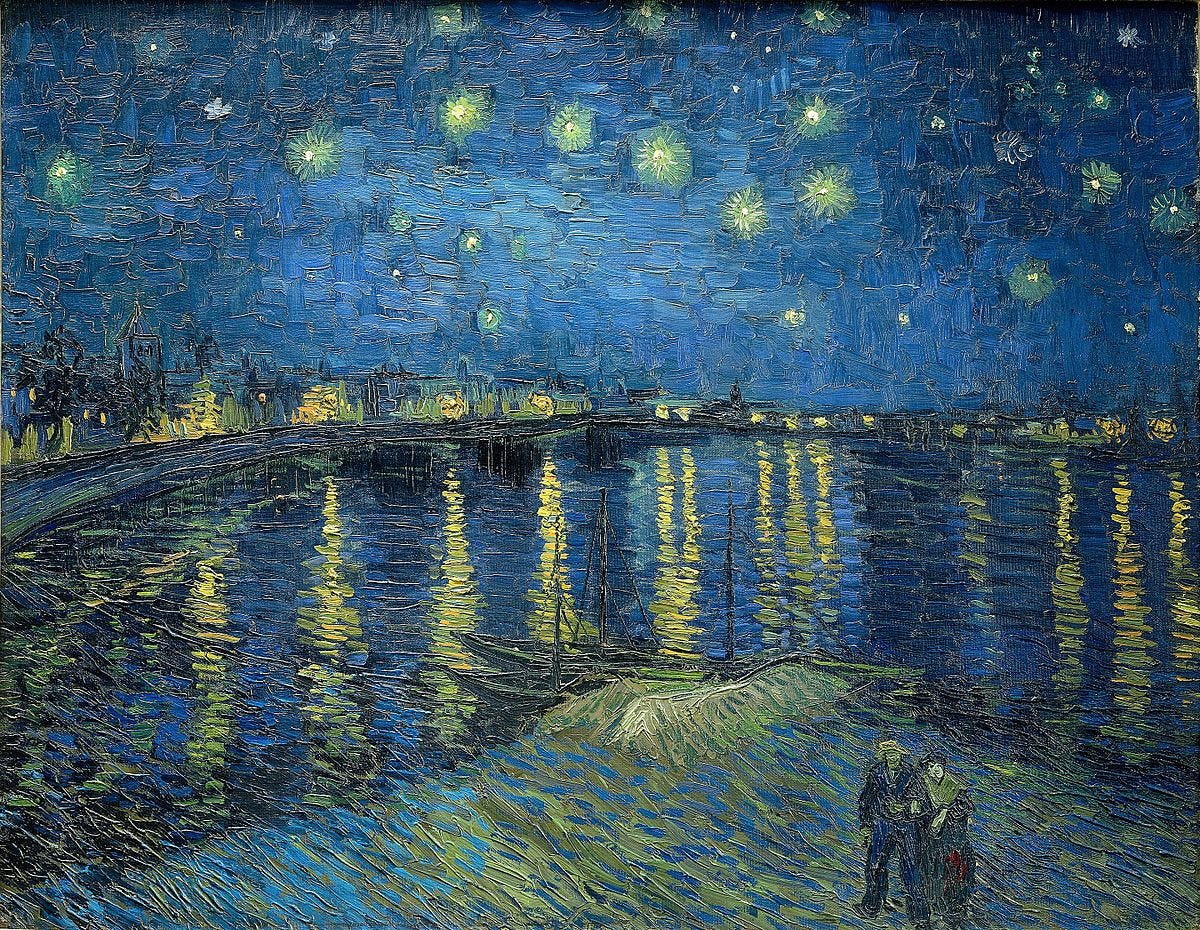A part of the divine, eternal scheme
Reflections on "Self-Reliance," Emerson's paean to individualism
Dear friend,
Five summers ago, when I moved out of my childhood home, I brought a single book with me: a collection of Ralph Waldo Emerson’s essays. Since then, it has remained my constant companion, dog-eared and annotated from years of devotional scrutiny.
For a spiritual-but-not-religious teenager who longed for an uncommon life, Emerson became my secular minister. His preachings challenged the principle of deference I had been raised with and urged me to trust the source of universal truth within myself. “In all my lectures,” Emerson once wrote, “I have taught one doctrine, namely, the infinitude of the private man.” To be seen as someone with inherent power and wisdom was revelatory.
“Self-Reliance,” Emerson’s paean to individualism, was a sermon I read faithfully and repeatedly. I got drunk on his romantic embellishments and pithy declarations (“Trust thyself: every heart vibrates to that iron string.” “Nothing is at last sacred but the integrity of your own mind.” “My life is for itself and not for a spectacle.”). I resolved to live as he did: a non-conformist who refused to capitulate “to badges and names, to large societies and dead institutions.”
“Absolve you to yourself,” he wrote, “and you shall have the suffrage of the world.”
Now, years later, reading Emerson is still an inebriating experience. Through his words, the individual swells to the universal; the world and its rules suddenly seem smaller, malleable, conquerable. It’s no wonder Emerson is seen as America’s prophet — who speaks to our country’s highest values of individual liberty and self-determination more beautifully than he?
But I have struggled to reconcile this Emersonian ideal with the the urgent, collective problems we face today. We have seen how unfettered individualism has frayed America’s social fabric. In relinquishing our obligations to our families, communities, and country, we are more free, but less insulated from misfortune. Without a proper infrastructure of care for families, fewer people are having children and half of marriages now end in divorce. The decline of community organizations1 has led to an epidemic of loneliness. These challenges have revealed that we cannot flourish on our own.
How can we reconcile the virtue of self-reliance with our commitment to the common good, without falling into dangerous collectivism? My attempt to answer this question has led me to reexamine what Emerson meant by self-reliance, and how he exercised it in his own life.
While Emerson preached self-trust and non-conformity, he did not propose an ideology of pure egoism. His self-reliance was not self-interest, but self-possession: to serve others without losing himself:
“I will have no covenants but proximities. I shall endeavor to nourish my parents, to support my family, to be the chaste husband of one wife,—but these relations I must fill after a new and unprecedented way.”
He insisted on asserting oneself and one’s innate gifts (“imitation is suicide”) and applying them to creating one’s conception of the good, regardless of others’ opinions:
“If you can love me for what I am, we shall be the happier. If you cannot, I will still seek to deserve that you should. I will not hide my tastes or aversions. I will so trust that what is deep is holy, that I will do strongly before the sun and moon whatever inly rejoices me, and that heart appoints.”
To Emerson, one’s sense of the good and true should not come from historical precedent or the opinion of the masses, but from “eternal law”: universal, timeless virtues that can be found within. He wrote that society is a wave that “moves onward, but the water of which it is composed does not.” While norms may shift, there are truths and values that are enduring, that transcend our age and bind us to one other through shared connection to the sacred and divine.
What Emerson argued for was not freedom from obligation, but freedom to become ourselves. And it is often through bonds forged with others and devotion to causes greater than mere self-advancement that we do so. Our self-reliance, Emerson wrote, “must not be mechanical, but spiritual, that is, must be elevation.” In other words, it must raise us out of our individual limitations to something higher.
After all, pure self-reliance, as it is commonly conceived, is a myth. Consciously or not, we all submit to something, whether it is an ideology, an organization, a partnership, or a cause. But not all forms of belonging are created equal. Loyalty to our family is better than loyalty to an abstract political tribe. The question of self-reliance is not how to remain free from attachment, but looking within to determine what is worthy of our devotion, and what we are willing to give to it.
Walt Whitman, Emerson’s disciple, once wrote that one becomes truly great when he “understands well that, while complete in himself in a certain sense, he is but a part of the divine, eternal scheme.”
To reject the extremes of individualism and collectivism and instead embrace interdependence — in which every individual retains their true self, but remains connected with others — is perhaps the true aim of Emersonian self-reliance. For living in truth, wrote Emerson, “is alike your interest, and mine, and all men’s.” It is the only way the promise of America, and the potential of each of us, can truly be achieved.
With love,
Ash
see: Richard Putman’s Bowling Alone, and Tocqueville’s commentary on associations in Democracy in America





Wonderful essay.
You’re nuanced revisiting of Emerson’s work is as poignant as it is profound.
Beautiful essay, Ashley. The idea that no one is truly self-reliant is so interesting. Girard shares a similar idea that we’re social creatures at our core and can’t escape mimetic influence (internalizing the values of people around us).
Really enjoyed this :)